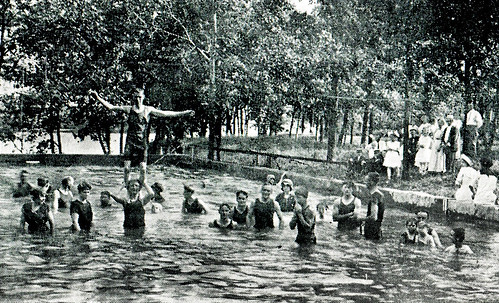Life was not easy in Joplin for a Chinese immigrant. The Chinese community was minuscule in the midst of a city whose population was overwhelming white. In previous posts, we covered the lives and affairs of Joplin’s immigrant community, and found that their lives were fraught with hardship and hostility. Jung Ling, sometimes referred to Lo Jung Sing or just Jung Sing, was one of those immigrants. During his time in Joplin he had to deal with his American wife absconding with his life savings and was forced to defend his business with a pistol.
In June of 1907, Jung attempted to gain legal entry for his son into America. During an interview with a government investigator, Jung claimed his son was born in the United States. When the boy was four, Jung took him to China to live with Jung’s Chinese wife. Now that his son was older, Jung wanted the boy to return to the United States to pursue an education. The government investigator, identified only as Mr. Tape, was a Chinese-American reportedly renowned for his ability to uncover and expose illegal Chinese immigrants. Mr. Tape rarely ventured into Southwest Missouri as few Chinese immigrants made the area their home. Reportedly at this time Joplin was home to only five Chinese residents and Carthage had only one Chinese resident. We do not know whether or not Jung was successful in his attempt to bring his son to the United States, but we do know that he was living alone four years later.
The same year, Jung, who owned both the Troy Laundry (located at 109 West Fifth Street) and a restaurant (in a 1909 Joplin city directory it is simply called “Chinese Restaurant” located at 117 East Fifth and 624 ½ Main Streets — Google Maps indicates the laundry was located roughly where Columbia Traders is today and that both businesses were across the street from each other) found himself in trouble once again. Jung was working late at his restaurant on a Wednesday evening when four strange men entered. The men sat down as if they were going to order a meal. Jung walked over to take their order. Without warning, the men jumped to their feet and attacked Jung with a blackjack. Frantically, Jung tried to escape out the back door, only to be beaten and choked into unconsciousness by his attackers.
Twenty-one hours passed before friends of Jung aroused him with loud knocks on his door. The thieves had locked him inside, perhaps to create the illusion that the restaurant was closed for business and to prevent a sooner discovery of their victim. Jung managed to unlock the door before he fell back into unconsciousness. A broken blackjack club, the metal shot used to give the weapon its heft spilled across the floor, illustrated the brutality of the attack. Once again, Jung’s savings had been stolen.
It was not until two weeks later, when the Joplin police had arrested a notorious robber, Arlie Smith, that Jung had the chance to identify one of his attackers. The Chinese immigrant still bore the wounds inflicted upon him from a fortnight before, but was by no means fearful when he spied Smith in a cell. The Joplin News-Herald reported that Jung leapt forward, prepared to attack Smith. Smith, meanwhile, dismissed Jung with a slur, and laughed. It’s unknown if Smith was tried for his robbery and assault of Jung, but already accused of other such thefts, it’s likely he was sent off to the penitentiary for one crime or another.
Sources: Joplin Globe, Joplin News Herald

